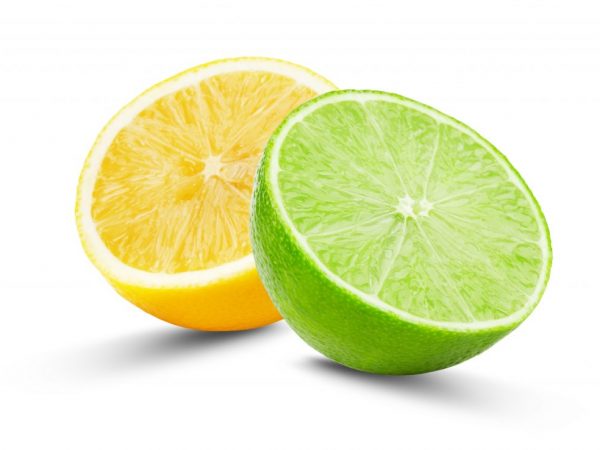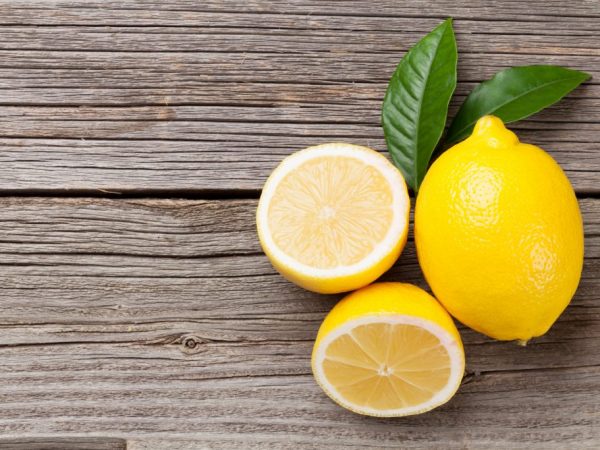Differences between lemon and lime
An interesting question is what is the difference between lemon and lime, because they have a lot in common. Both fruits have beneficial properties.

Differences between lemon and lime
The origin of citrus
Lemon differs from lime in origin. The homeland of lemon is China, India and the Pacific Islands. Preferably grown in subtropical climates.
Lime began to grow on the island of Malacca. Citrus differs in that it grows in tropical climates and at an altitude of more than 1000 m. If the fruit is grown in mid-latitudes, then the harvest will be poor. Today, citrus is common in the Antilles, Mexico, India, Egypt.
Comparison of fruits
The difference between lemon and lime lies in their rind color.
The difference between lemon and lime is that lemon is an evergreen tree, the seedlings of which reach 6-8 m, the fruits are egg-shaped, and have rounded ends. Lime is a shrub, grows up to 1-2 m, rarely up to 5 m, fruits are smaller in size than lemon, under good conditions lime fruits can reach the size of a lemon.
Also, the difference between is the color of the pulp. Lime has green flesh with a juicy granular structure. Lemon is yellow in color, has a colorless core.
Citruses taste similar. Lime is sour than lemon. Moreover, it is bitter. Lime contains a lot of ascorbic acid and is hard to eat without sugar. It is often used in cooking to spice up the taste of a dish.
Features of storage of citrus
Citruses are stored under different conditions. Lime has a thin skin with a smooth surface. It is stored for 2 weeks in a refrigerator at 0 ° -4 ° C, the high humidity is not suitable for the fruit. Lemon has a shelf life of 2 to 3 months, which is why it is used more often.
Fruits should be chosen by weight, the amount of juice in the citrus depends on this: a larger citrus has more juice. When choosing a lime, you should look at the condition of the peel: it should be elastic and have a green color. If the lemon is green, it means that it is unripe.
The benefits of lime and lemon
Lime and lemon contain a lot of ascorbic acid and vitamin C, lime has more vitamin C, so it is more acidic. During processing, up to 60% of vitamin C is lost; for its preservation and beneficial use, it is worth eating fresh citrus.
Medicinal benefits of citrus fruits:
- have a calming effect;
- delay the development of atherosclerosis;
- have a therapeutic effect on the respiratory system;
- stabilize the work of the heart and blood vessels;
- have a strengthening effect on vascular connections;
- remove harmful substances;
- strengthen the immune system;
- prevent the formation of cancer cells;
- lower cholesterol;
- improve the elasticity of vascular joints, due to the presence of vitamin P, pectins and other trace elements.
Useful properties of lemon

Lemon improves the digestion process
The fruit pulp of lemon contains a large number of beneficial elements. It is a remedy for scurvy.The fruit contains 50% of the dose of vitamin C required for consumption per day. Citrus is useful for a lack of vitamins, hypervitaminosis, gastrointestinal diseases, gout and sore throat, metabolic disorders, hypertension, problems of the urinary system, improves the digestion process, suppresses excessive appetite.
In cosmetology, the fruit is used in the production of face masks, remedies for freckles, in the fight against age spots, and cracks in the skin are treated with it. Lemon juice is used to strengthen hair.
The benefits of lime
Unlike lemon, lime contains folic acid, a complex of B vitamins, which boosts immunity and supports the healthy functioning of the circulatory system. The fruit is useful for pregnant women, lime juice helps to cope with toxicosis.
Citrus has a beneficial effect on the functions of the nervous system, calms the body, suppresses depression. A mixture of citrus juice with 200 ml of water and a spoonful of honey is used to remove harmful substances and toxins in the fight against obesity. Eat on an empty stomach.
Contraindications
- gastritis;
- pancreatitis;
- gastrointestinal ulcer;
- acute form of jade;
- enteritis;
- acid intolerance;
- increased acidity.
Lime juice has a negative effect on tooth enamel. After consuming citrus, it is worth rinsing the mouth. Possible manifestations of allergic reactions - cough, rashes, runny nose.
Conclusion
Lime and lemon have a number of differences and similarities. The choice of fruit depends on individual preferences and individual characteristics of the citrus


